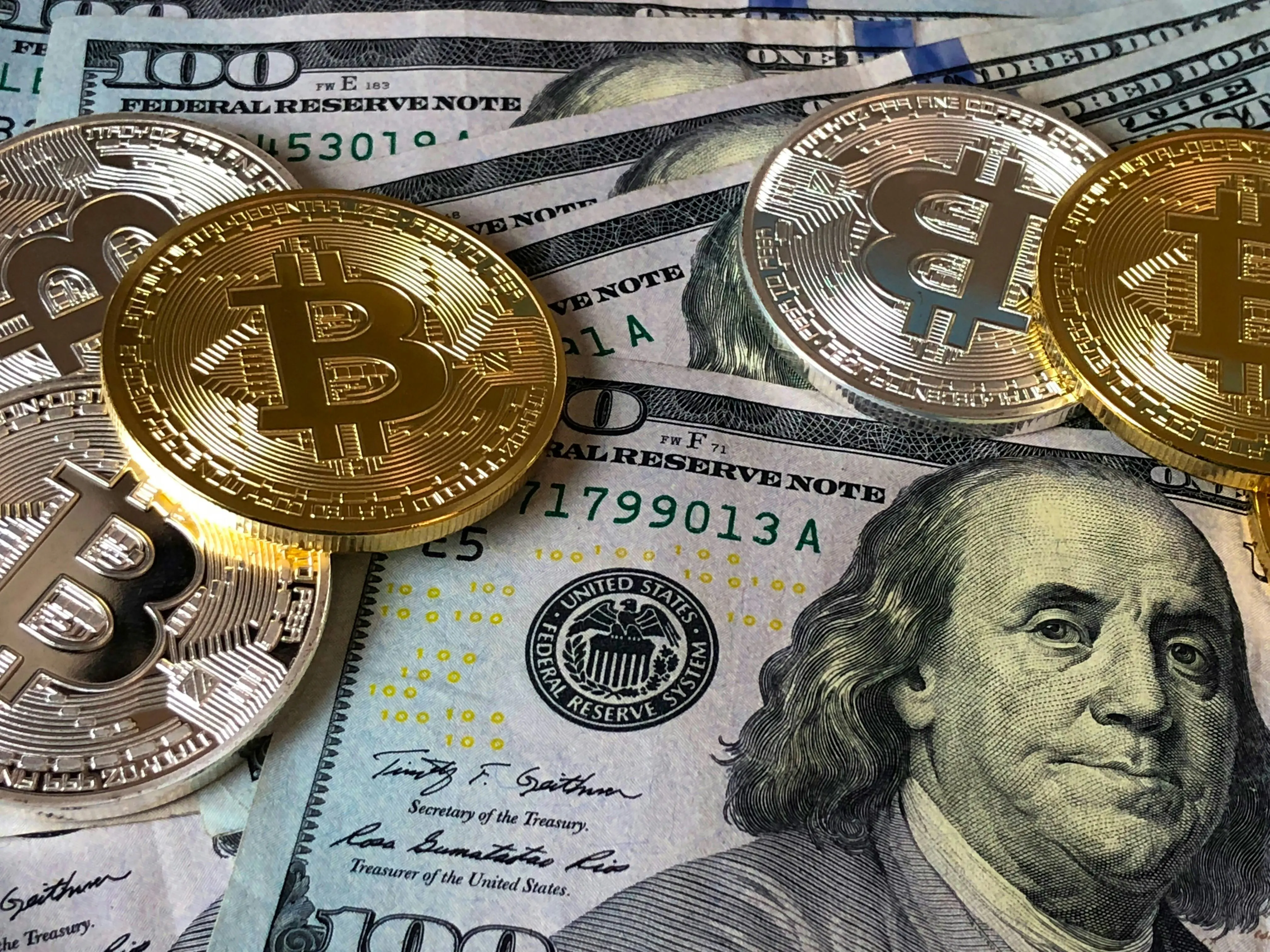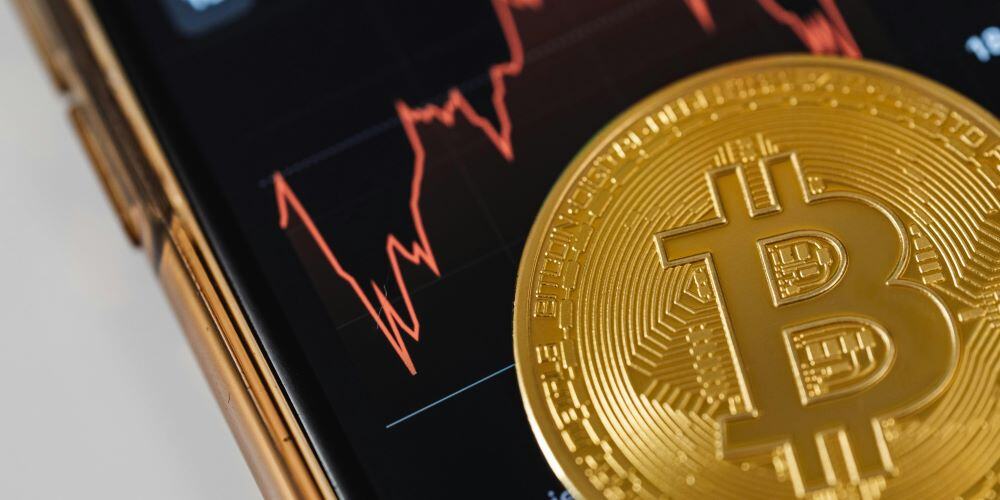Digital Assets and Global Affairs: How Politics Drives Cryptocurrency Trends
Take outs:
- Historical Political Events Impacting Cryptocurrency Markets: Political events like the Brexit referendum, the U.S.-China trade war, and India's proposed cryptocurrency ban have caused significant market fluctuations. Events such as these often lead to increased demand for cryptocurrencies, with investors seeking them as hedges against economic uncertainty or government policy changes.
- Recent Political Events and Their Effect on Crypto: The rise in U.S. regulatory scrutiny, particularly regarding fraud, market manipulation, and environmental impact, has created market volatility. Additionally, global events such as the Russia-Ukraine war and rising inflation have further led investors to view cryptocurrencies as a hedge against inflation, although this has also prompted increased regulatory attention.
- Institutional Adoption and Evolving Regulatory Frameworks: The current cryptocurrency boom stands apart from previous trends due to increased institutional interest and a more structured regulatory environment. Companies like Tesla, MicroStrategy, and financial giants like Fidelity and BlackRock have entered the crypto market, which has brought more stability and resilience, despite occasional price fluctuations from political announcements.
- Political Events and Market Maturity: While political events historically caused sharp price changes, the current cryptocurrency market has become more resilient, partly due to greater global adoption and institutional involvement. Political events still influence long-term trends and regulatory decisions but have less dramatic short-term effects on crypto prices than in the past.
Digital Assets and Global Affairs:
How Politics Drives Cryptocurrency Trends
Cryptocurrency markets have expanded considerably over the past decade, and with this growth, the impact of political events on crypto prices has become more evident. Political instability, regulatory updates, and shifts in economic policies often lead to volatility, causing fluctuations in cryptocurrency values. Looking at historical examples of political events that have influenced the market helps us understand recent trends, especially during the current boom. This analysis highlights the link between political events and cryptocurrency price movements.
1. Historical Instances of Political Events Influencing Cryptocurrency Markets
Political events have played a steady role in shaping cryptocurrency markets. Here are some key examples of political developments that directly impacted crypto prices:
- Brexit Referendum (2016): The 2016 Brexit vote created worldwide financial uncertainty, and cryptocurrency markets were also affected. Concerns around the UK’s exit from the European Union led to a rise in Bitcoin prices. Investors turned to it as a hedge against traditional market volatility, seeking a more stable alternative.
- U.S.-China Trade War (2018–2019): Trade tensions between the U.S. and China from 2018 to 2019 introduced economic uncertainty across global markets. During this period, Bitcoin and other cryptocurrencies saw price increases as some Chinese investors sought to move capital out of the yuan, viewing crypto as a safer alternative amid tariff pressures and economic strain.
- India’s Proposed Cryptocurrency Ban (2018 and 2021): In 2018, India announced plans for a potential cryptocurrency ban, which triggered a market dip as many Indian investors pulled out. When India revisited its stance on crypto regulations in 2021, similar volatility occurred, underscoring how governmental positions in high-adoption regions can significantly impact markets.
- China’s Ban on Crypto Mining (2021): China’s 2021 ban on crypto mining led to a sharp decrease in Bitcoin’s value due to the country’s dominance in global mining operations at that time. The restrictions reduced Bitcoin’s hash rate, causing a 30% price drop, which highlighted the impact of government policies in large economies on crypto prices and supply chains.
- COVID-19 Pandemic and Government Stimulus (2020): When the COVID-19 pandemic hit in 2020, it caused a significant disruption to global markets, including cryptocurrencies. Initially, cryptocurrencies dropped in value alongside traditional assets. However, as governments introduced large stimulus packages and central banks flooded markets with liquidity, investors turned to cryptocurrencies as a potential hedge against inflation. This shift helped drive the price of Bitcoin and other major cryptocurrencies to new heights, with Bitcoin reaching an all-time high of $64,000 in April 2021. This period demonstrated how fiscal policies and economic relief measures can indirectly support the growth of cryptocurrency markets.
2. The Impact of Recent Political Events on Cryptocurrency Markets
The cryptocurrency market has grown significantly over the past two years, driven partly by unique political events. Here are some recent political factors that have had a substantial impact on cryptocurrency markets:
- Increased Regulatory Focus from the U.S. Government (2023–2024): In 2023, the U.S. government ramped up its focus on cryptocurrency regulations due to concerns over fraud, market manipulation, and environmental impact. This increased oversight included proposed legislation for stablecoin management and heightened enforcement from the Securities and Exchange Commission (SEC). Each regulatory announcement impacted the market, often leading to price drops. For example, Bitcoin and Ethereum saw declines when the SEC took enforcement actions against major exchanges and financial institutions, reflecting market sensitivity to regulatory changes. The meeting by Democratic Congressman Ro Khanna represents a strategic alignment between technology and politics, potentially fostering a pro-crypto policy stance. Such political endorsements can significantly sway public and market sentiments, as evidenced by the positive shift in election odds for Vice President Harris by over 16%. Former U.S. President Donald Trump expressed support for the cryptocurrency industry, recognizing its potential to keep the U.S. ahead of global competitors like China. His pro-crypto stance is evidenced by his campaign’s acceptance of crypto donations and his association with pro-crypto advocate J.D. Vance as his running mate.
- Global Economic Uncertainty with Rising Inflation and Conflict (2022–2023): The Russia-Ukraine war has contributed to global economic instability, alongside high inflation rates worldwide. Many investors turned to cryptocurrencies as a hedge against inflation as traditional assets became less appealing. However, the war also heightened regulatory attention, with governments working to prevent crypto from being used for sanction evasion. This combination of economic uncertainty and regulatory scrutiny has influenced crypto values as investors adjust to the shifting landscape.
- Adoption of Bitcoin as Legal Tender by El Salvador (2021): El Salvador made history in 2021 by becoming the first country to adopt Bitcoin as legal tender. This move sparked global interest and boosted Bitcoin’s value as investors viewed it as a sign of growing mainstream acceptance. However, international institutions like the IMF raised concerns, highlighting the risks and challenges of integrating cryptocurrency into national economies. Mixed reactions created market volatility, as investors speculated on the success and long-term effects of El Salvador’s decision.
3. Comparing Past Trends to the Recent Boom
The current cryptocurrency boom stands apart from previous market movements due to several factors tied to the evolving political and economic landscape:
- Higher Global Adoption and Institutional Interest: Unlike earlier booms, the present surge is marked by significant institutional involvement. Companies like Tesla and MicroStrategy have made substantial Bitcoin investments, while firms such as Fidelity and BlackRock are exploring Bitcoin ETFs. In addition, political changes, such as the easing of tax regulations on crypto in some countries, have sped up institutional adoption, contributing to market stability and resilience.
- Evolution of Regulatory Frameworks: In the past, political events like China’s 2021 crackdown caused abrupt and sharp price fluctuations. However, recent regulatory frameworks are evolving more gradually, providing investors with clearer guidelines. This shift from unpredictable to more structured regulatory approaches has brought stability, even though announcements can still lead to temporary price changes.
- Geopolitical Uncertainty and Inflation Concerns: The ongoing geopolitical issues, coupled with inflation and concerns about fiat currency devaluation, have attracted more investors to cryptocurrency. Cryptocurrencies, seen as a form of “digital gold,” are increasingly viewed as a hedge against economic uncertainty. Unlike previous periods where market instability followed political unrest, the current market is more resilient due to widespread global adoption and the growing role of crypto as a safe haven asset.
Political events have historically triggered sharp changes in cryptocurrency prices, often due to uncertainty and shifts in investor sentiment. However, the recent market boom reflects a more resilient cryptocurrency space, one that is less susceptible to sudden fluctuations caused by individual political events. Factors like increased institutional investment, evolving regulatory frameworks, and greater acceptance of cryptocurrencies as legitimate assets have helped stabilize the market compared to previous years. As the market matures, political events will still influence trends, but their impact may be less dramatic than in the past. Instead of causing sharp price movements, political events will likely shape long-term regulatory decisions and market trends. This will contribute to the transformation of cryptocurrencies from volatile assets to more stable components of the global financial system. While political events will remain a key factor, they will interact with a market that has shown its ability to endure challenges and progress toward broader adoption.
If you'd like assistance with your crypto related taxes, book a discovery session below.
Share this
You May Also Like
These Related Stories

The Argument for National Cryptocurrency Reserves

Likes, Shares, and Blockchain: The Social Media Impact on Crypto Adoption

/Brand/Logos/Kelly%20Partners%20Accountants%20Logo/Kelly-Partners-Accountants-Horizontal-Logo.webp?width=1500&height=212&name=Kelly-Partners-Accountants-Horizontal-Logo.webp)